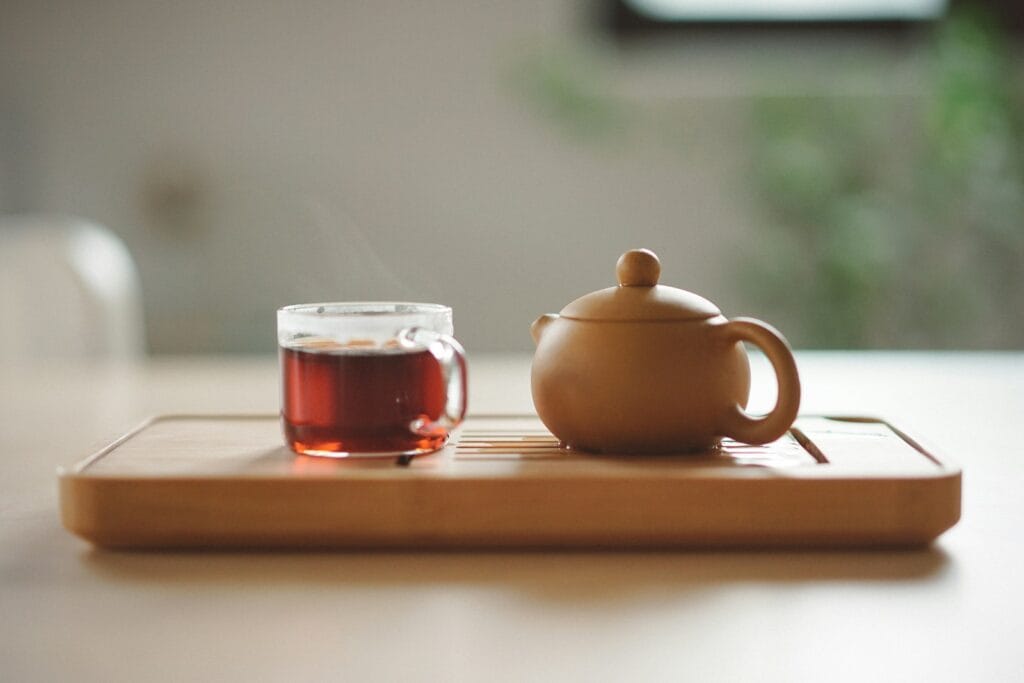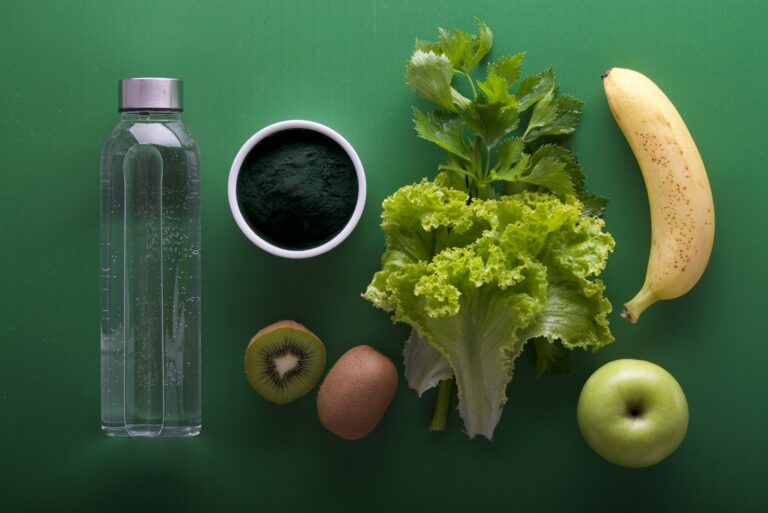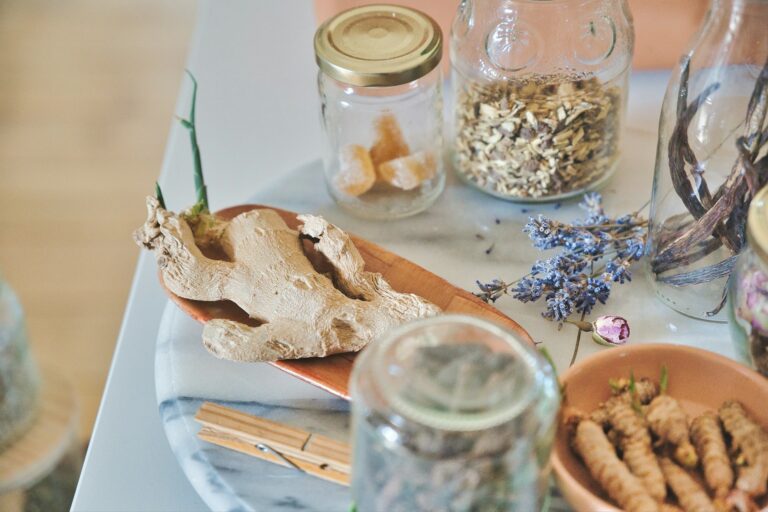Life moves fast these days, doesn’t it? For most of us, stress is just part of the deal—work, family, the endless ping of our phones. It’s exhausting. But here’s the thing: nature’s got some gentle fixes that can help you unwind, and they don’t come with a list of side effects.
Herbal teas like chamomile, lavender, and lemon balm are known for easing stress and anxiety. They calm the nerves and encourage relaxation. People have been turning to these natural tea options for centuries, and, honestly, the science is finally catching up. Even the simple act of making and sipping a warm mug of tea can become a comforting ritual—a little pause button in your day.
You don’t need pricey supplements or complicated routines to get a break from daily tension. The right herbal tea is an easy, soothing addition to your routine. Many herbal teas for anxiety have natural ingredients that work with your body to bring calm—without making you sleepy or foggy.
Key Takeaways
- Herbal teas like chamomile, lavender, and lemon balm naturally help reduce stress and encourage relaxation.
- Making time to prepare and enjoy tea can be a soothing ritual to break up a hectic day.
- Regularly drinking these teas can support your mental wellbeing as part of your self-care routine.
Understanding Everyday Stress and How Herbal Teas Help
Stress is just part of life for most people. It shows up in both your mind and body. Herbal teas can help you manage these feelings with natural compounds that interact with your brain and body.
Causes and Symptoms of Everyday Stress
Stress can hit from anywhere—work, family, money worries, even just sitting in traffic. Your body reacts with a “fight or flight” response, pumping out hormones like cortisol and adrenaline.
You might notice:
- Headaches or tense muscles
- Trouble sleeping
- Feeling irritable or moody
- Hard time focusing
- Stomach issues
- Faster heartbeat
If stress sticks around too long, it can really wear you down. Your immune system weakens, and your risk for things like high blood pressure and depression goes up.
Spotting these signs can help you start better stress management.
The Science Behind Herbal Teas for Stress Relief
Herbal teas have active ingredients that can calm your body’s stress response. Some herbs work right on your nervous system.
Chamomile, for example, has apigenin, which binds to certain brain receptors and acts as a mild sedative. Lavender works with GABA, a neurotransmitter that helps settle your nerves.
Just making tea and sipping it slowly can be relaxing. Taking that small break helps switch your body into “rest and digest” mode instead of “fight or flight.”
Some studies show that regular tea drinking can lower cortisol, your main stress hormone. Plus, the warmth of tea helps your body relax by boosting circulation.
Herbal Teas vs. Traditional Teas for Stress Management
Herbal teas aren’t the same as black or green tea—they don’t come from the Camellia sinensis plant and usually have no caffeine. That makes them especially good for stress and anxiety relief, particularly at night.
Traditional teas have L-theanine, which can help you feel calm but alert, especially when combined with caffeine. Black tea, for example, may lower stress hormones, but the caffeine isn’t great if you’re sensitive to it.
Herbal teas like chamomile, lavender, and lemon balm are more about relaxing your nervous system. Adaptogens like ashwagandha and holy basil help your body handle stress over time.
What’s best? It depends:
- Need to focus in the morning? Traditional teas can help.
- Want to unwind at night? Herbal teas are your friend.
- Dealing with ongoing stress? Adaptogenic blends might be worth a try.
Mixing and matching can work well for a lot of people.
Top Herbal Teas for Everyday Stress
Herbal teas are a simple, natural way to ease daily stress. They help calm your nerves and can be a comfort at the end of a long day.
Chamomile Tea: The Classic Calming Tea
Chamomile is probably the first tea most people think of for stress. It’s gentle and contains apigenin, which helps reduce anxiety and promotes sleep.
It’s great anytime, but especially before bed. A cup about half an hour before you hit the pillow can help you drift off and quiet your mind.
Chamomile tea may:
- Lower stress hormone levels
- Ease mild to moderate anxiety
- Support better sleep
- Soothe a stress-related upset stomach
Steep chamomile flowers for 5-7 minutes in hot water. A bit of honey can make it tastier and even more calming.
Lemon Balm Tea: For Relaxation and Mood Balance
Lemon balm tea has a bright, citrusy flavor and is known for reducing stress and promoting calmness. It’s part of the mint family and has been used for ages to lift mood and ease tension.
Research suggests lemon balm boosts GABA in your brain, which helps control anxiety. It’s a good pick for those super stressful afternoons.
Benefits include:
- Better focus under pressure
- Less nervousness
- Improved mood
- Fewer stress headaches
Try it in the late afternoon to help shift gears from work to home life. Steep fresh or dried leaves for 5-10 minutes.
Lavender Tea: Soothing for Mind and Body
Lavender tea is all about gentle stress relief, with a floral aroma that’s relaxing on its own.
Drinking lavender tea lets calming compounds like linalool work on your nervous system. It’s a nice option when you’re feeling frazzled or anxious.
People often use lavender tea for:
- Easing tension
- Reducing restlessness
- Sleeping better
- Lifting mild depression
Steep dried lavender buds for 5-7 minutes. Some folks like to mix it with chamomile for even more relaxation.
A cup in the early evening can help you wind down before bed.
Passionflower Tea: Managing Anxiety Naturally
Passionflower tea is another solid choice for reducing anxiety levels and quieting a busy mind. The plant’s compounds may increase GABA in your brain.
Native Americans used passionflower as a natural sedative, and studies back up its use for anxiety and stress.
You might notice:
- Fewer racing thoughts
- Less muscle tension
- Better sleep
- Lower stress response
It’s best about an hour before stressful events or at night to relax. The taste is mild and earthy, so it’s pretty easy to drink.
Steep dried passionflower for 7-10 minutes and enjoy it while it’s warm.
Other Effective Herbal Teas and Infusions
Looking for something different? There are plenty of other herbal teas that can help manage stress in their own ways.
Peppermint Tea: Stress Relief and Digestion Support
Peppermint tea is crisp and cooling, great for clearing your head. The menthol helps relax tight muscles and can help you feel refreshed when stress hits.
It’s also good for your stomach. If stress messes with your digestion, peppermint tea can ease discomfort and bloating.
How to make it:
- 1-2 teaspoons dried peppermint leaves
- Steep 5-7 minutes in hot water
- Drink up to three cups a day if you like
Even just smelling the minty steam can help you relax.
Valerian Root Tea: Promoting Restful Sleep
Valerian root tea is a go-to for stress-related sleep problems. It’s been used forever as a natural sedative, and it won’t leave you groggy in the morning.
Valerian interacts with GABA receptors, calming the brain a bit like some anti-anxiety meds—but you don’t need a prescription. Drinking it regularly in the evening can help you get into a better sleep routine.
The taste is pretty earthy and strong, honestly. You can add honey, mix it with chamomile or lemon balm, or throw in a cinnamon stick to make it more pleasant.
Brew it about 30-60 minutes before bed to give your body time to relax.
Holy Basil Tea: Balancing Cortisol Levels
Holy basil, or Tulsi, is an adaptogen that helps balance cortisol, your main stress hormone. It helps your body respond better to stress.
Drinking holy basil tea regularly can help moderate your stress response and support your adrenal glands.
Other perks:
- Boosts your immune system
- Helps keep blood sugar steady
- Packed with antioxidants
It has a slightly spicy, clove-like taste. It’s nice with a bit of honey or mixed with green tea for a morning pick-me-up.
Ginger and Turmeric Teas: Anti-Inflammatory Benefits
Ginger and turmeric teas tackle the physical side of stress with their anti-inflammatory powers. They help ease the tension that builds up in your body.
Ginger tea is warming and boosts circulation. The gingerols and shogaols in ginger help fight inflammation and soothe your stomach when stress hits.
Turmeric tea (sometimes called “golden milk” if you use milk) contains curcumin, which helps heal both body and mind. Add a little black pepper to help your body absorb it.
Try this blend:
- ½ teaspoon grated ginger
- ¼ teaspoon turmeric powder
- Pinch of black pepper
- 1 cup hot water or warm milk
- Cinnamon stick and honey, if you want
Choosing and Enjoying the Best Herbal Teas for Stress
Picking the right herbal teas and brewing them well can make a big difference. The ingredients, how you prepare them, and using them regularly all matter when it comes to getting the most out of your tea.
Key Compounds That Promote Relaxation
The best stress-relieving teas have certain compounds that help calm your nerves. Chamomile has apigenin, which can ease anxiety and help you sleep.
L-theanine, found in some blends, helps you relax without making you sleepy by boosting alpha brain waves. It’s nice for feeling calm but still alert.
A few herbs to know:
- Valerian root: Contains valerenic acid, which may help with deep sleep
- Lavender: Has linalool, a calming compound
- Lemon balm: Contains rosmarinic acid, which reduces anxiety
Antioxidants in herbal teas also fight oxidative stress, which can make your body’s stress response worse. Most of these teas are naturally caffeine-free, so you can enjoy them in the evening without worrying about being up all night.
Preparation Tips for Maximum Calming Effects
How you make your herbal tea really changes how much you get out of it. Don’t use boiling water—keep it just under, around 190-200°F. That way, you won’t scorch the delicate stuff that actually helps you relax.
Steeping times make a difference:
- Chamomile: 5-7 minutes
- Lavender: 3-4 minutes
- Valerian: 8-10 minutes
Always cover your cup while the tea steeps. Otherwise, those lovely essential oils just float away with the steam, and honestly, that’s where a lot of the magic comes from.
Want a stronger effect? Try mixing teas that help with stress. Chamomile and lavender together? That’s a classic, and it works.
Fresh herbs are usually more effective than old or low-quality dried ones. If you can, go for loose leaf rather than bagged tea. You’ll get better flavor and more of the good stuff.
Making Herbal Teas Part of Your Daily Stress Management
If you’re hoping for real results, make herbal tea a habit. One or two cups a day is a good place to start, and it helps to treat it like a little ritual.
A cup in the morning can help you start off calm. At night, maybe an hour before bed, it can do wonders for your sleep. Plenty of folks say they sleep better when they stick with calming teas.
Set aside a quiet spot just for tea. Even just 5-10 minutes of sipping mindfully can help reset your mood.
You can get even more out of it by:
- Taking slow, deep breaths while you drink
- Putting your phone away for a bit
- Adding honey if you like—just a little, it won’t mess with the benefits
Try different teas and pay attention to how you feel and sleep. Everyone’s different, so it’s worth figuring out what actually works for you.
Frequently Asked Questions
People have a lot of questions about herbal teas for stress. Here are some of the most common ones, from which teas work best to how to fit them into your day.
Which herbal teas have a calming effect on the nervous system?
A few herbal teas stand out for their calming effects. Chamomile, lavender, and lemon balm are favorites for relaxation.
Chamomile has apigenin, a compound that helps calm the brain and might make it easier to drift off.
Lavender tea actually lowers stress hormones, so if you’re feeling frazzled, it can help.
Lemon balm’s been used for ages to soothe nerves and ease anxious feelings. It’s especially nice in the evening.
What are the top teas recommended by health experts for relieving stress?
Experts usually recommend a handful of herbal teas for stress. Chamomile, lavender, lemon balm, peppermint, and passionflower are some of the top picks.
Passionflower tea boosts GABA in your brain, which helps you relax and sleep.
Peppermint tea tastes fresh and can help relax tight muscles and settle your stomach—two things that often go haywire when you’re stressed.
Tulsi (Holy Basil) is an Ayurvedic favorite that helps your body adapt to stress and even gives your immune system a little boost.
How do herbal teas aid in reducing anxiety and panic attacks?
Herbal teas help with anxiety in a couple of ways. Some have natural compounds that affect your brain chemistry and help you relax.
Teas like chamomile and lavender have flavonoids and essential oils that boost neurotransmitters linked to calmness.
And honestly, just the act of making and sipping tea can help. It forces you to slow down and pay attention, which can break up anxious thought patterns.
Even the warmth of the tea can relax your body and ease tension.
Which teas are best suited for improving memory and concentration while managing stress?
If you want to stay sharp and calm, a few herbal teas can help. Green tea, ginkgo biloba, and rosemary are worth a try.
Green tea has L-theanine, which keeps you alert but relaxed—no coffee jitters.
Ginkgo biloba tea might boost blood flow to your brain, which could help with memory and focus, especially when you’re under pressure.
Rosemary tea has compounds that may help with memory recall and processing, plus it can lower cortisol, the stress hormone.
Can you suggest a daily herbal tea regimen for maintaining a stress-free lifestyle?
A simple tea routine can help keep stress in check. Start your day with green tea for gentle energy and focus.
Mid-morning, tulsi or peppermint tea can help you stay calm and productive.
In the afternoon, lemon balm tea is great for avoiding that slump without messing up your sleep later.
Evenings are made for chamomile, lavender, or passionflower tea—about an hour before bed is perfect for winding down.
What are the proven health benefits of consuming herbal teas for stress management?
Turns out, herbal teas do more than just help you unwind. Studies suggest that sipping them regularly can lower cortisol levels and ease some of the physical signs of stress.
A lot of these teas are packed with antioxidants, which help your body fight off inflammation—a problem that often gets worse when you’re stressed out.
And let’s be honest, getting enough sleep can be tough when stress is high. Some herbal teas make it easier to fall asleep and stay asleep, which is a big deal for recovery and just feeling better overall.
People who drink herbal tea often say they deal with fewer stomach problems, headaches, and tight muscles—all those annoying things that tend to show up when life gets overwhelming.




